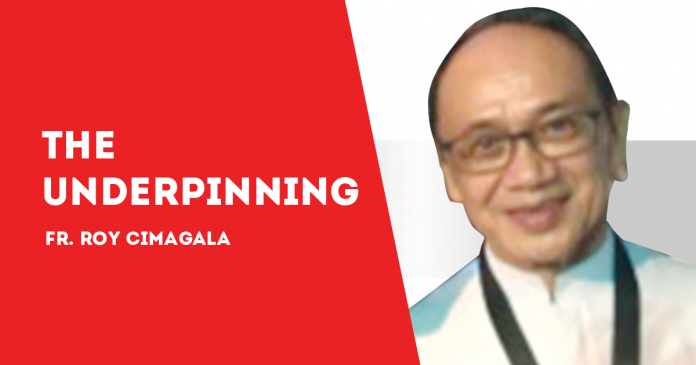
PREFER to suffer rather than compromise charity. That should be our attitude every time we find ourselves in some heated discussion, debate or argument, especially in matters that are open to opinion. You can be sure you would be resembling yourselves more with Christ than with anybody else.
Christ preferred to suffer and eventually die rather than defend himself or insist on the correctness of his teachings and his actuations. He knew that man, who has been created in the image and likeness of God, would eventually stray from the right path and would just have to be dealt with charity. That is how man would be saved from his — our — earthly predicament.
Let’s remember that we are all sinners. (cfr. 1 Jn 1, 8) This predicament started even with our first parents who, in spite of being created in the state of original justice, managed to sin. God knows this very well, but this does not diminish his love and concern for us. In fact, this predicament makes God to love us more by sending his son who became man to bear all our sins and save us.
Christ did not come to condemn us but rather to save us. (cfr. Jn 3, 17) And so he just absorbed all the mockeries, insults, the scourging and crowning with thorns, and eventually the crucifixion.
This is how St. Peter described the reaction of Christ in those moments of trials: “When they hurled their insults at him he did not retaliate. When he suffered, he made no threats. Instead, he entrusted himself to him who judges justly.” (1 Pt 2, 23)
We should just try our best, with God’s grace, to imitate this kind of reaction in our differences and conflicts with others, especially in matters that are open to opinion, like in our political preferences.
There is no need to be adamant in our views and opinions, because no matter how strongly we feel about our thinking, we do not have the exclusive possession of what is right and wrong, what is fair and unfair. Even those who we are sure to be wrong in their views, have some valid reasons for their opinions.
Let’s never forget that in the life of Christ, even those who betrayed him and persecuted him till death, had a role to play in the providence of God. We can cite the example of Caiaphas, the high priest at that time, who according to the gospel prophesized that it was better for one man to die than for the whole Jewish nation to perish. (cfr. Jn 11, 50)
Thus, in our effort to uphold what we think is right over wrong, what is true over the untrue, what is fair over the unfair, let us never fall into what is called as bitter zeal that would compromise charity that is essential in our life.
Yes, we can be forceful in promoting and defending our views, but let’s never forget that in doing so, it is never licit nor moral for us to fall into any act that goes against charity.
This is obviously not easy to do, given our wounded condition. That is why we have to wage a continuing struggle to identify ourselves more and more with Christ, asking for grace, developing the proper attitudes, virtues and skills, and learning to make many self-denials as Christ himself encouraged us to do.
We should be ready to suffer and to experience what is considered as loss and defeat in human terms. Christ also “failed” when he was made to die on the cross, but he resurrected and won for us what is most important in our life.
We should not be easily deceived by the momentary earthly and temporal perks that can compromise our eternal salvation. We have to learn to be sport and always constructive in our reactions./PN





